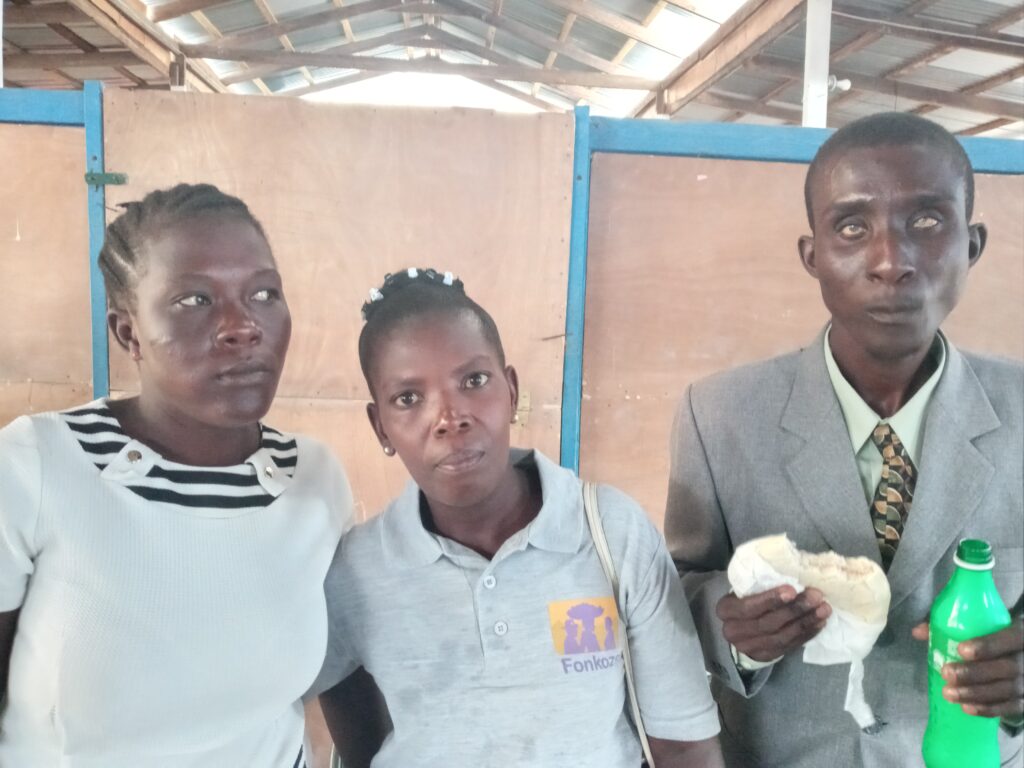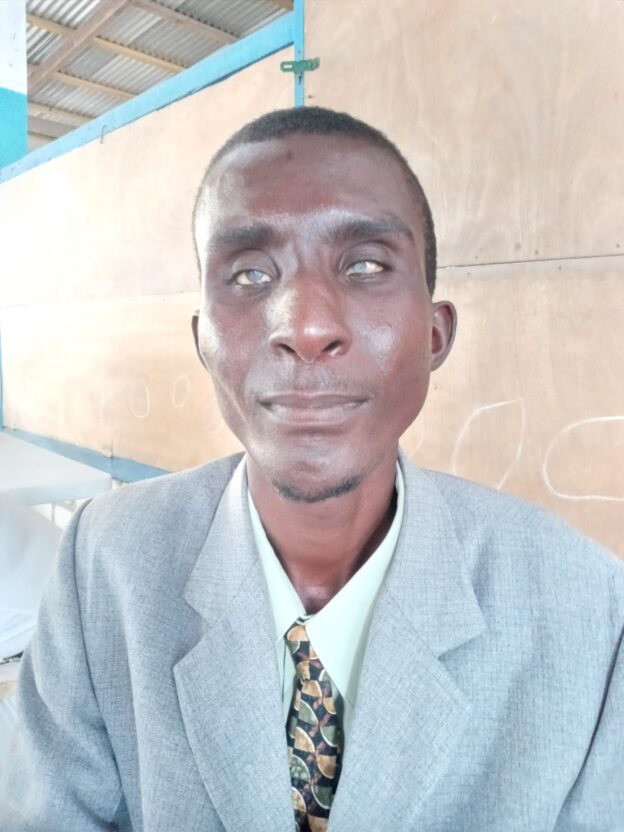Evens Victor is a young blind man. He lives in the countryside outside of downtown Gwomòn. He joined the CLM program in 2017 with the first cohort of families who went through the program there, and he graduated from it in January of 2019.
Before he joined CLM, he depended on his parents for everything. “If I wanted to have a few gourds in my pocket, I had to ask them for it.” But he joined the program, chose goats and poultry as his two assets, and got to work. He couldn’t take care of the livestock by himself, but his mother was willing to help him manage it.
The poultry didn’t do very well. He couldn’t keep an eye on them himself, and his mother was too busy with other things to give them all the attention they would have needed. But his goats flourished. The program gave Evens just two young females, but he soon had eight goats. That is as many as he really wants to have. He sells younger ones now and again, and he puts the money into one of his savings accounts.
That is an unusual decision. CLM members and graduates frequently sell livestock, but usually they do so to cover an expense or to make an investment. They might sell goats or pigs to buy a cow. They might sell an animal and use proceeds of the sale to buy merchandise for a small business or to invest in their farming. They might make a sale to cover school expenses for their kids. But they wouldn’t normally sell an animal just to put the money away. Savings are important, but they don’t grow the way a young pig or a turkey does. “Kòb sere pa fè pitit,” or “Money you put away doesn’t reproduce,” as they say.
But Evens knows what he’s doing. His mother has her own work to do, so there are only so many goats she can watch for him. He’s noticed that when they get to be too many, they sometimes go hungry and get sick. Their value decreases. Selling some of them to keep the numbers down might not earn him any profit, but it prevents losses. He uses some of the money to buy shares at the weekly meetings of his savings and loan association and he puts some in a savings account at Fonkoze.
He’s also started a new business. Another member of his church taught him to make liquid laundry detergent. He has a circle of regular customers in his neighborhood. They pay him when he’s ready to buy ingredients. He sells out each batch in about two weeks. The sales give him the kind of regular trickle of income that livestock cannot easily provide. He wants to learn macramé next.
On Thursday, Evens came to downtown Gwomòn to attend the graduation of the second cohort of CLM families. One of the graduating members invited him to the festivities. She asked him to be her godfather.
Haitians have various sorts of godparents: those who preside at an infant’s baptism or their presentation before a congregation and those who preside at a protestant baptism later in life. But there are godparents for weddings and for graduations, too. His goddaughter chose him as someone she felt she could count on for help. “She looked for someone who would be able to give her something,” Evens explains.
He’s delighted that she chose him. “It shows that people think of me as someone who’s able. I go by to see her often now, because it makes me so proud to hear her call me ‘godfather.’”

